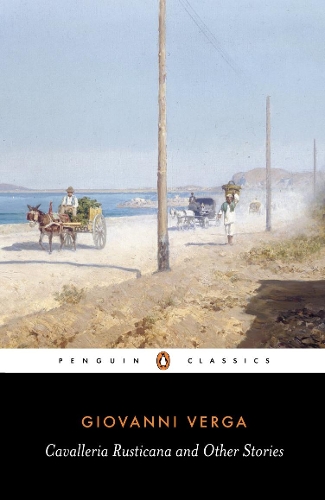
Cavalleria Rusticana and Other Stories
Publishing Details
Cavalleria Rusticana and Other Stories
By (Author) Giovanni Verga
Introduction by G. H. McWilliam
Translated by G. H. McWilliam
Penguin Books Ltd
Penguin Classics
30th March 2006
24th June 1999
United Kingdom
Classifications
General
Fiction
Modern and contemporary fiction: literary and general
Literary studies: fiction, novelists and prose writers
Literary studies: c 1800 to c 1900
Literary studies: c 1900 to c 2000
Short stories
853.8
Physical Properties
272
Width 129mm, Height 198mm, Spine 12mm
191g
Description
First time in Penguin Classics The stories of Giovanni Verga (1840-1922) are wonderful evocations of ordinary Italian life, focusing in particular on his native Sicily. In an original and dynamic prose style, he portrays such eternal human themes as love, honour and adultery with rich and colourful language. The inspiration for Mascagni's opera, 'Cavalleria Rusticana' depicts a young man's triumphal return home from the army, spoilt when he learns that his beloved is engaged to another man. Verga's acute awareness of the hardships and aspirations of peasant life can be seen in stories such as 'Nedda', 'Picturesque Lives' and 'Black Bread', while others such as 'The Reverend' and 'Don Licciu Papa' show the dominance of the church and the law in the Sicilian communities he portrays so vividly.
Author Bio
Giovanni Verga (1840-1922) was born into a bourgeois family in Sicily and began writing historical romances as a teenager. His later fiction was more naturalistic and dramatic in style and dealt largely with Sicilian rural life. He was introduced to the English-speaking world in the translations of D. H. Lawrence and is now considered to be one of the major Italian nineteenth-century authors. Harry McWilliam has translated Boccaccio's Decameron for Penguin.
